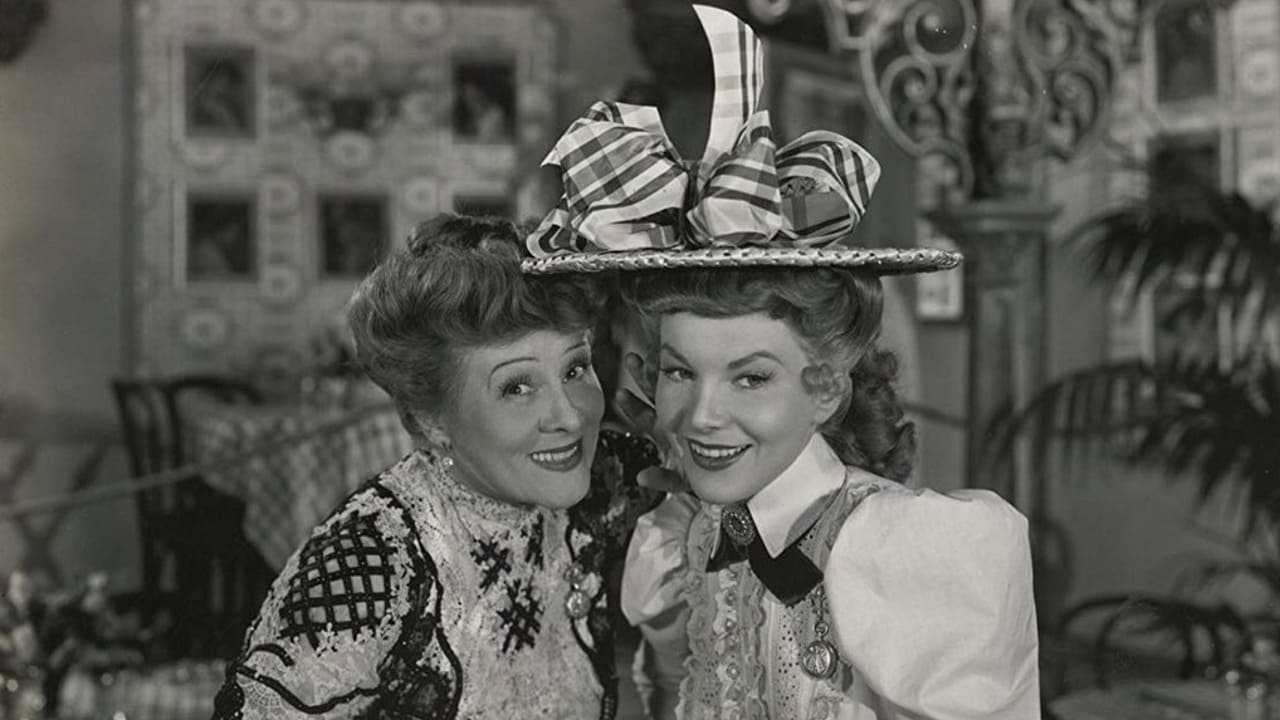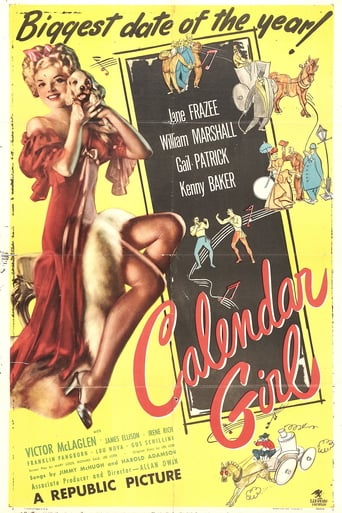

For Republic Pictures this was undoubtedly one of their bigger productions in 1947 and I couldn't help thinking that with a score by top songwriters Jimmy McHugh and Harold Adamson this film might be better known had some major studio did it.As it is Calendar Girl takes place at the turn of the last century and it concerns life in the artist's colony of Greenwich Village. Two men of the arts from Boston, painter James Ellison and composer William Marshall, arrive in town and take up residence in the artist's boardinghouse of the indulgent Irene Rich who must have a literal last name to put up with the itinerant payments of rents she gets and expects. Another in the house is singer Jane Frazee who both Marshall and Ellison court.The problem is that Ellison is already engaged to Gail Patrick back in Boston and he's wealthy on his own and just taking a hiatus from the family banking business. He's making a play for Frazee and that's coming between him and Marshall. As for Marshall he gets a different kind of partnership. Singer Kenny Baker is becoming Hart to his Rodgers and with his tenor is plugging their songs as well. I can't forget Frazee's father Victor McLaglen who is a fire captain and still regards Frazee as Daddy's Little Girl even after she becomes a celebrity of sorts when Ellison's painting makes her the Calendar Girl of 1901. McLaglen is just his overbearing, lovable, oafish self.The lack of production values kills what is a nice picture and could have been a classic over at MGM.
... View MoreAn entertaining but dated period musical, this seems out of place in an era of colorful A musicals from the majors. But what is there is still enjoyable with up-beat song and dance numbers that bring the early part of the 1900's back to life even in glorious black and white. The more than slight story concerns a song-writing team (William Marshall and Kenny Baker) who promote a beautiful dancer for the cover girl of an upcoming 1901 calendar. The daughter of a tough fire chief, she at first spurns their romantic intentions but is soon torn between the two. This leads to friction between the two which can only be resolved in typical fashion through another woman. The music is the real star here with rousing performances of such standards like "At the Fireman's Ball" between a few lovely ballads which includes "Have I told You Lately That I Love You?". An amusing supporting cast includes such pro's as Victor McLaglen as the heroine's pop, Franklin Pangborn as an agent and stage veteran Irene Rich as a dottie landlady.
... View MoreFor me the main reason to see this film is Allan Dwan's wonderful direction. He has the good sense to park it and point it when the action dictates, e.g. in the musical sequences, but he also takes the opportunity to explore every inch of a very complicated set with the camera: up and down the stairs, out the back from low and high, in and out the front door, all around the top studio apartment, and towards the end an enormous crane shot of the house fronts.And he gets good performances out of the cast. I don't agree with the other comments about the acting. The women are all excellent (Jane Frazee in the lead, Irene Rich as the landlady) and Gail Patrick is downright sensational as the cousin from Boston. Victor McLaglen and James Ellison as the Boston sleaze-bag are both excellent; Kenny Baker works hard at it; Franklin Pangborn always a delight: only William Marshall as the composer is a bit wooden, but then he is the designated sap in the script.All in all a very nice ensemble piece with good music too. The firemen's ball number is hilarious.
... View MoreJane Frazee, huh? Well, who'd have thought the Prelinger site would ever get around to some of the neatest little fillers available? Johnny Downes, Jane, Donald O'Connor ( I live in hope)a few of the names that took the sting from the expression B Movies. Okay so the memory plays tricks, all that used to glisten wasn't, etc, me I just sat back and enjoyed the unexpected treat. If there was ever a fault it was the fact that few, if any, of this kind of 'musical' ever featured material likely to have a life outside of the actual movie. Reams of songs which rarely appeared on a disc so that after watching 'Calendar Girl' you probably left the cinema whistling something from 'Show Boat'. Still a treat to see it, though.
... View More